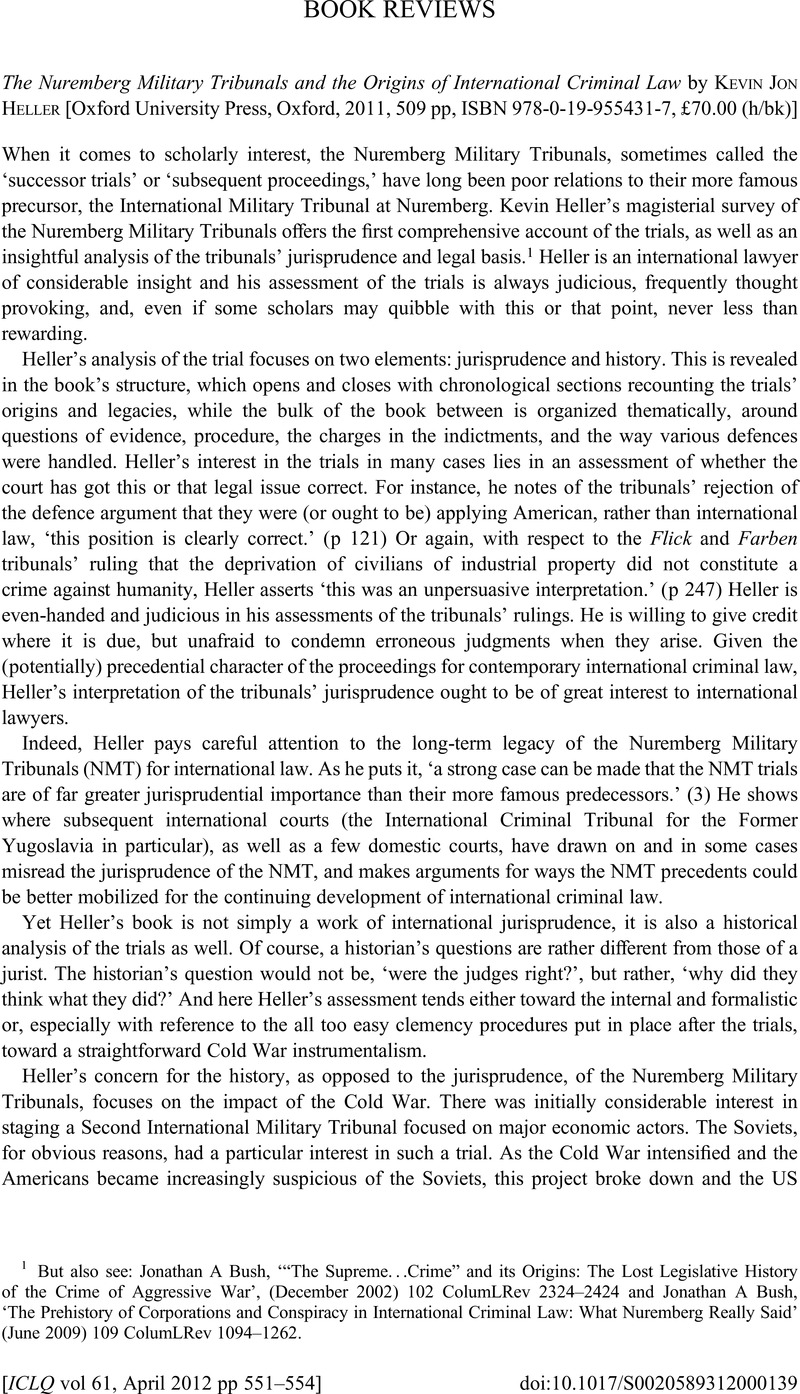No CrossRef data available.
Published online by Cambridge University Press: 06 June 2012

1 But also see: Bush, Jonathan A, ‘“The Supreme…Crime” and its Origins: The Lost Legislative History of the Crime of Aggressive War’, (December 2002) 102 ColumLRev 2324–2424Google Scholar and Bush, Jonathan A, ‘The Prehistory of Corporations and Conspiracy in International Criminal Law: What Nuremberg Really Said’ (June 2009) 109 ColumLRev 1094–1262Google Scholar.
2 Cf. Bloxham, Donald, ‘“The Trial that Never Was”: Why there was no Second International Trial of Major War Criminals at Nuremberg’, (December 2002) 285/87 History 41–60CrossRefGoogle Scholar.
3 Borgwardt, Elizabeth, A New Deal for the World: America's Vision for Human Rights (Belknap Press of Harvard University Press, Cambridge, MA, 2005)CrossRefGoogle Scholar.
4 Kim Christian Priemel, ‘The ‘Industrialist Cases’ and the Case of the Industrialists: Nuremberg as a Forum of Decartelization’ in Kim Priemel and Alexa Stiller (eds), The Nuremberg Trials Revisited: New Analyses and Interpretations (Oxford and New York: Berghahn, forthcoming).
5 Pendas, Devin O, ‘“The Magical Scent of the Savage”: Colonial Violence, the Crisis of Civilization and the Origins of the Legalist Paradigm of War’, (Winter 2007) 30 The Boston College International and Comparative Law Review 29–53Google Scholar.
6 Gong, Gerrit W, The Standard of ‘Civilization’ in International Society (Clarendon Press, Oxford, 1984)Google Scholar.
7 Heinrich von Treitschke, Politics edited by Hans Kohn (Harcourt, Brace & World, New York, 1963 [1898]) 300–301.
8 ibid 306.
9 Wilke, Christiane, ‘Reconsecrating the Temple of Justice: Invocations of Civilization, Humanity, and Justice at the Nuremberg Justice Trial’, (2009) 24 CanJL&Society 181–201Google Scholar.